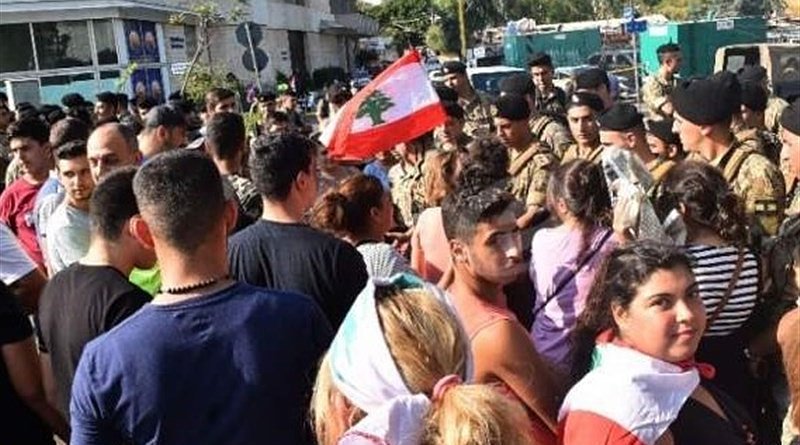Will Iraq And Lebanon Have The Same Fate As Syria? – OpEd
By Amin Bagheri
A few years ago, when the Syrian people staged a demonstration to oppose the Syrian regime, their main goal was to transform the political system, ignoring their efforts to end Syria’s decades of serious crisis rather than ending the crisis.
The challenges that emerged after the popular demonstrations against the Syrian regime of Bashar al-Assad not only plunged the country deep into internal crises, but also made Syria’s political sovereignty extremely vulnerable, and the Syrian territory resilient to regional tensions and rivalries. And it has become trans-regional and has provided the groundwork for political powers as well as terrorist groups, including Islamic State (IS).
Rescuing the country from the crisis of foreign influence in Syria has faced numerous difficulties, and even the United Nations Security Council and other international organizations have failed to resolve the Syrian crisis. In this regard, the United Nations has repeatedly tried to resolve the Syrian issue, but in fact it has been practically impossible despite apparent all kind of interferences, such as political pressure from regional powers, terrorism, and etc. Accordingly, it takes a long time to resolve the Syrian civil war.
While the West believes that the war in Syria has been halted by the killing of Abu Bakr Baghdadi and the abolition of IS terrorist actions, the claim has been incorrect and unrest continues in Syria and people have not returned to their normal lives.
The Middle East, which has always been a junction of political tensions between the Western powers and the appropriate context for the activities of terrorist groups, is witnessing unrest and demonstrations in Lebanon and Iraq, as the most politically important countries in the Middle East. After the protests against the political systems in Baghdad and Beirut and the escalating tensions in these two countries, the question now arises whether Iraq and Lebanon will face the fate of Syria or whether the popular movements of these two countries can pave the way to move forward and change the lifestyle of the nation-state and change the unstable situation of these two countries.
Looking back on the events of the last ten years in the Middle East, we have witnessed revolutions to reform or change the political regimes to achieve a decent quality of life by the people of the Middle Eastern countries, all of whom in a way have come to despair of their ruling political system. These include the revolution of the people of Libya, Egypt, Syria and more recently the unrest in Iraq and Lebanon. The common slogan of these demonstrations without any exception has always been in opposition the sectarian model of governance, the religious leadership and the politicians who have been corrupted.
Now, after years of surging political and terrorist tensions in Syria, as we deliberately examine the two most recent important events in the region in Iraq and Lebanon, we find these events only a try to save these nations from fractured regimes and limited economic unrest. There is no consensus among these movements, much of which relates to the intellectual identity and character of the people whose accumulated anger to their government are demonstrating in the streets of Baghdad and Beirut.
Over the past few months, Lebanon and Iraq have been in constant turmoil. Undoubtedly, the economic and social problems of the Iraqi and Lebanese people are the main denial of the recent protests. Unemployment, inflation, poverty and poor quality of life in Lebanon and Iraq have become an important issue for the people, while at the same time corruption in these countries are seeing an increasing trend. It is natural that the people of these two countries want to reform the government and eradicate corruption from their political and economic system of government, but the opposition and violence in almost every one of these countries is almost the same. It has been operationalized in ways such as blocking roads and disrupting social life, making people angry and exacerbating psychological and social pressures.
Looking at the initial protests of the Syrian people in March 2011, we can clearly see the resemblance to what is happening in Baghdad and Lebanon now. In fact, whether today, a few years ago, or 10 years later, any protests against the political traditions of the Middle Eastern countries have been somehow caused by people’s dissatisfaction with their livelihoods, failed economies, and the inadequacy of government officials.
To summarize, with a close look at the Iraqi and Lebanese uprisings, people of these countries must take the right steps in light of the current situation in Syria. This does not mean that the protesters should not protest, but rather that they should be knowing that political and economic demands were unattainable with guns and war and the street protests are different from the civil war. In the absence of a general political approach to the continuing situation to differentiate the two cases, it seems likely that will lose stability and security rather than reaching to political stability as same as Syrian.
*Amin Bagheri is a member of the Iranian International Studies Association in Tehran. His research focuses on Iran and the Middle East.

